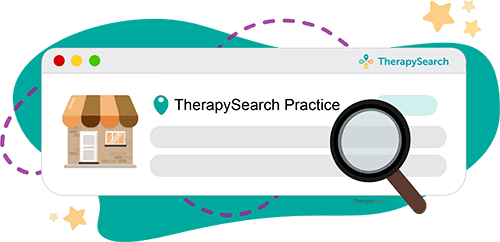The Secret to Getting Great Testimonials for Your Therapy Site
By Becky DeGrossa on August 28, 2019

Testimonials are a great way for potential clients to see examples of your expertise in action and to begin to build trust. But as a therapist, testimonials present a unique challenge: how can you stay HIPAA-compliant when soliciting and publishing testimonials? Without clarity on who you can ask for testimonials and what you can publish without breaching client confidentiality, it's tempting to avoid them entirely.
What's more, online testimonials aren’t always trusted; people have become wise to flowery and generic language that doesn't address their concerns. As a result, they’re more likely than ever to gloss over testimonials or dismiss them as unhelpful or inauthentic.
So, what’s the secret to sharing standout testimonials that your ideal clients will trust while maintaining compliance with HIPAA? Something known as the reverse testimonial, a technique perfected by marketing guru Sean D’Souza.
What is a Reverse Testimonial?
Traditional testimonials start and end with praise. They’re nice, but they can be hard for potential therapy clients to relate to. For example:
I’ve referred many of my patients to Dr. Smith for help with anxiety, and they have all said she’s the greatest! One of the best therapists I know.
Reverse testimonials start with the problem. The testimonial giver talks about their doubts first. Because this approach mirrors a potential client’s experience and goals when seeking therapy, they’re more likely to relate to and trust the testimonial. A reverse testimonial may look like this:
I was a little hesitant about referring my patients to Dr. Smith at first. I knew she was qualified, but that didn’t mean she’d be the right fit for my patients. Then I met with her, and I was convinced. I like that she uses research-backed methods, like CBT and EMDR, but the reason I started referring patients to her practice was her calm demeanor and collaborative approach to treating anxiety. I knew many of my patients would be able to connect with her, and I haven’t been disappointed. I’ve already received thank you cards from two patients for referring them to Dr. Smith.
Which testimonial was more relatable? Which gave more information about the therapist and her approach? Which addressed a specific concern your clients may have?
Reverse testimonials don’t just offer praise; they acknowledge and alleviate doubts that may be keeping a potential client from calling your practice.
Who Should You Ask?
Asking current or former clients carries ethical concerns. Does your professional body even allow you to ask clients for testimonials? Will they feel pressured to participate? Are you asking them to do more work when they need your help reducing stress?
Our recommendation is that you avoid soliciting testimonials from clients. Instead, start by contacting colleagues, peers, and referrers in the psychology and healthcare space. They carry their own authority, and testimonials from these sources can be more impactful and trustworthy than client testimonials.
How Should You Ask?
Asking for testimonials without offering any guidance means you’re likely to get a lot of short, traditional testimonials that don’t work.
Potential clients will relate to longer, narrative testimonials, and that means you need to have a structure in mind. To be clear, you aren’t making up testimonials or telling people what to write. Rather, you’re using questions to guide responses into a more useful format. This approach helps people think about your service in a way that naturally creates a more compelling, relatable testimonial.
What Questions Should You Ask to Get Better Testimonials?
To get a great reverse testimonial, Sean D’Souza recommends incorporating the following six questions (they’ve been altered slightly to apply to your needs as a practice owner):
1. What obstacle or fear would have kept you from referring clients to me?
Many potential clients share similar reservations before beginning therapy. Asking a colleague to address their concerns in a testimonial is a great way to get hesitant individuals engaged. This can also give you greater insight into potential barriers preventing other referrers from contacting you.
2. What did you learn after you referred clients to me?
This point responds to the objections or fears the testimonial giver had in the first question. Put together, you have the start of a powerful reverse testimonial:
When I referred my first patient, I was worried it would be too expensive for them. But after their first two sessions, they told me it was the best investment they’ve made.
3. What specifically did you like most about my approach or how I handled the referral?
Specific praise is great way to highlight your unique selling points in more detail.
4. What other benefits did you noticed as a result of referring clients to me?
This question gets the testimonial giver thinking about other aspects of your approach and service that may not otherwise get called out.
5. Would you recommend me to others in need of therapy? If yes, why?
Colleagues and peers who would make a recommendation or referral are generally passionate about the service and believe in the work you do. This question helps them expand on why they would recommend you.
6. Is there anything else you’d like to add?
Chances are you’ll have everything you need already, but sometimes reviewers are still putting their thoughts together through the previous questions. Concluding with this catch-all question can generate some powerful responses.
Where Should You Put Testimonials on Your Therapy Site?
Many clients won’t visit a designated Testimonials page on your website unless they are already pretty certain that they want to contact you. If you collect a testimonial that is about a particular specialty or modality, include it in the sidebar or at the bottom of the related page. That way, the testimonial is more likely to be seen by potential clients who are still making a decision about whether or not to call you and encourage them to take the next step.
* The content of this post is intended to serve as general advice and information. It is not to be taken as legal advice and may not account for all rules and regulations in every jurisdiction. For legal advice, please contact an attorney.
About Becky DeGrossa
Get more content like this, delivered right to your inbox. Subscribe to our newsletter.
More Content You'll Enjoy

Converting Clients

What's New: Introducing Practice Profiles in TherapySearch!
